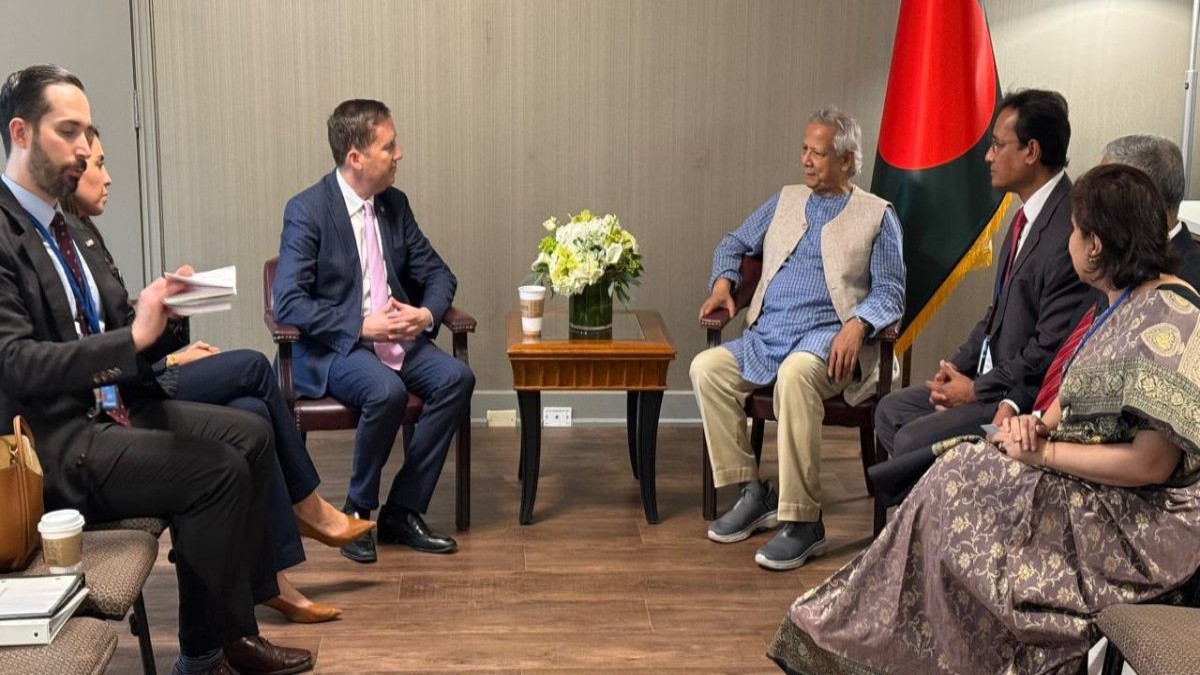It has now been more than a year since escalating protests forced the freely elected but increasingly authoritarian Bangladeshi Prime Minister Sheikh Hasina to resign. There were many reasons to protest the former premier, whose father had led Bangladesh to independence and who herself had ruled the country for 20 of its 54 years.
Hasina’s critics accused her of renaming public institutions to glorify her own family, and allegations about public corruption in infrastructure projects benefitting her and her family outraged university students struggling to find work. Some Bangladeshis also accused her Awami League of manipulating elections.
In 2008, I was an election observer on a bipartisan US delegation to Bangladesh; there was broad consensus that her election was free and fair. The opposition, likely seeking to save face, chose to boycott rather than contest the next election. In 2018 and 2024, the Awami League again won, albeit in elections that many international observers considered were marred by voter suppression, vote rigging, and violence. The elections may have been imperfect, but there was still an airing of ideas and some popular legitimacy.
Hasina’s term ended prematurely. Student protests, nominally over civil service quotas for veterans of the independence war and their family members, escalated and turned violent. At the time, many journalists suggested blaming Sheikh Hasina for the bloodshed. They reported the outrage and expansion of demonstrations were organic. In reality, it now appears that Pakistan’s Inter-Services Intelligence (ISI) agency, perhaps backed by Qatari and Turkish funding, instigated and fanned the flames of protests.
Following Sheikh Hasina’s ouster, the then President Joe Biden celebrated Bangladesh’s supposed democratic turn. On September 24, 2024, Biden met with interim leader Muhammad Yunus at the United Nations to express US support for the transition and commend the student-led movement. “If the students could do so much sacrifice for their country,” Biden told Bangladesh’s interim leader Muhammad Yunus. Later, the White House issued a statement promising “continued US support as Bangladesh implements its new reform agenda.”
Impact Shorts
More ShortsWhat Yunus pitched as reform was autocracy and retribution by any other name. He has opened prison cells and released Islamists and terrorists, not on human rights grounds, but rather to make room for his political opponents. Yunus and his backers accuse journalists, civil society leaders, and former secularist leaders of spurious charges up to and including murder. Yunus’ henchmen focus special ire on Bangladesh’s small Hindu and Christian communities. Yunus hides behind his nearly two-decade-old Nobel Peace Prize much like Yemeni Muslim Brotherhood activist Tawakkol Karman used her prize as a shield to pursue personal and political agendas rooted more in retribution and hate than in peace and justice.
Rather than right the wrongs of Biden’s naïve approach to Bangladesh and the radical Islamist agenda driving Yunus, Marco Rubio’s State Department appears intent on repeating them. On a June 30, 2025, phone call, press reports suggest Rubio endorsed Yunus’s so-called reform agenda.
President Donald Trump’s second-term tilt toward Pakistan and away from India has only encouraged Pakistan and Yunus to accelerate their project to transform Bangladesh into a second Pakistan–terror-sponsoring and intolerant.
The crisis no US president saw coming has defined the foreign policy legacy of every Oval Office occupant since George HW Bush in 1989. Trump may lobby for a Nobel Prize and exaggerate his peace-making, but his and Rubio’s blind spot toward Bangladesh and Yunus’ effort to transform Bangladesh into an incubator of intolerance and Islamist radicalism will be as consequential to regional security as President Jimmy Carter’s naïve belief that Ayatollah Ruhollah Khomeini sought democracy rather than religious rule in Iran.
Rather than take Yunus’ excuses and explanations at face value, Trump and Rubio should break with the naïve and failed policies of Biden and then Secretary of State Antony Blinken. They should call events in Bangladesh what they are: a slow-motion coup, and should sanction Yunus for his complicity and his imprisonment of journalists and former lawmakers.
The United States should put Bangladesh on its religious freedom watchlist and designate Bangladesh Jamaat-e-Islami as a terrorist group. The United States should further revert recognition of Bangladesh’s true leadership to Sheikh Hasina until forthcoming elections in which the Awami League should have equal and legal status. To do anything other would be to sacrifice religious liberty and democracy and sow the seeds for regional instability for decades to come.
Michael Rubin is a senior fellow at the American Enterprise Institute and director of policy analysis at the Middle East Forum. The views expressed in the above piece are personal and solely those of the author. They do not necessarily reflect Firstpost’s views.
)